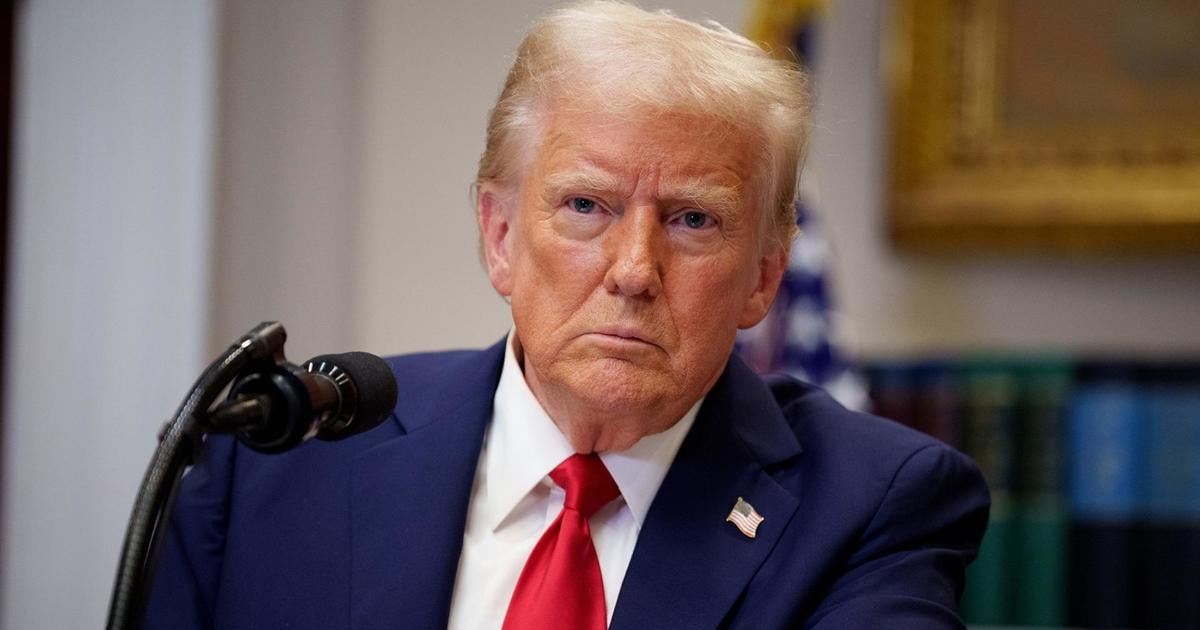Among the flurry of executive orders since his Jan. 20 inauguration, President Donald Trump has taken aim at rooting out diversity, equity and inclusion, or DEI, programs within the federal government. But his efforts go beyond DEI, with one recent order rescinding a Civil Rights-era rule that has helped protect millions of workers from discrimination.
Mr. Trump’s Jan. 21 order — “Ending illegal discrimination and restoring merit-based opportunity” — revokes the Equal Employment Opportunity rule signed by President Lyndon B. Johnson in 1965. According to the rule, federal contractors, who today employ 3.7 million people, can’t discriminate against job applicants or workers on the basis of race, gender and other protected characteristics.
Revoking the 60-year-old rule eliminates a bedrock civil rights protection for American workers, signaling an effort to target workplace issues that go beyond DEI, labor experts say. While DEI is shorthand for programs that encourage equality in the workplace for women, minorities and other groups, the Equal Employment Opportunity rule prohibited federal contractors from engaging in acts of discrimination, such as refusing to hire someone due to their race or paying an employee less because of their gender.
“It is still stunning to me that he took such an extraordinary step,” said Fatima Goss Graves, CEO of the National Women’s Law Center, a nonprofit advocacy group focused on gender justice. Revoking the rule signals “he is going after something bigger: the basic and foundational idea that we should be able to work at workplaces without discrimination.”
She added, “We agreed to that 60 years ago, and I’ll add that people in this country support it, too.”
What was the Equal Employment Opportunity rule?
The rule required federal contractors to “take affirmative action” to ensure that workers aren’t discriminated against based on race, color, religion, sex, sexual orientation, gender identity or national origin. This covered everything from hiring to promotions and pay, with the Department of Labor tasked with overseeing and enforcing the rule.
How does revoking the rule impact protections for workers?
It’s still illegal under U.S. law for employers to discriminate on the basis of race, gender or other traits, labor experts said.
But rescinding the Equal Employment Opportunity act could have a chilling effect on cases where workers at federal contractors allege they have been treated unfairly, and could impact the Department of Labor’s ability to pursue workplace discrimination cases, Josh Boxerman, government affairs manager at the National Employment Law Project, told CBS MoneyWatch.
“Taking away this set of tools puts workers at a disadvantage,” he added.
Does this have an impact on private employers?
While the Equal Employment Opportunity rule focuses on federal contractors, Mr. Trump’s executive orders could spill over to private employers, said Alex Hontos, a partner at law firm Dorsey & Whitney and expert on government contracting.
“It’s not just about government contractors and grantees,” Hontos said. “It is clearly a stepwise approach and is going to apply to the private sector. You see that at the back end of the [executive order], where attorneys general have been directed to put a plan together to either call out private-sector companies that are involved in DEI or to actually seek enforcement actions in some way.”
Even before Mr. Trump’s orders banning DEI from federal agencies, corporations, including Meta, Ford, McDonald’s and Walmart, have been stepping back from these programs. Those decisions followed a 2023 Supreme Court decision banning affirmative action in college admissions, as well as pressure from conservative political activists.
Why is President Trump banning DEI and revoking the Equal Employment Opportunity rule?
Mr. Trump’s aim is to restore what the administration considers to be a merit-based hiring system, according to officials and his executive orders.
“It is the policy of the United States to protect the civil rights of all Americans and to promote individual initiative, excellence and hard work,’ the president wrote in the order to revoke the 1965 rule.
DEI policies, he wrote, have led to “illegal, pernicious discrimination that has prioritized how people were born instead of what they were capable of doing.”
Numerous lawsuits have taken aim at DEI programs, with some alleging that the policies discriminate against people who aren’t minorities or that they violate some workers’ rights to free speech, among other allegations, according to New York University’s Meltzer Center.
“The Trump administration isn’t getting rid of the concepts of diversity, equity and inclusion as they are typically understood,” a viewpoint from Erec Smith, research fellow at the Cato Institute and co-founder of Free Black Thought, a nonprofit dedicated to highlighting viewpoint diversity within Black communities.”He’s getting rid of the critical social justice version, which is inherently divisive.”
What will happen with DEI programs?
DEI programs are being scrubbed from the federal government, according to the Trump administration’s directives.
All federal employees in DEI roles were placed on leave by 5 p.m. Eastern time on Wednesday. Agencies were also told to “take down all outward facing media (websites, social media accounts, etc.) of DEIA [Diversity, Equity, Inclusion and Accessibility] offices”; cancel upcoming DEI trainings; and terminate contracts with DEI-related contractors by the same time Wednesday.
Meanwhile, Mr. Trump’s Jan. 21 executive order requires federal agencies to come up with “up to nine potential civil compliance investigations” of publicly traded companies, large nonprofits and other private institutions with DEI programs that “constitute illegal discrimination or preferences.”
That part of the executive order “seems to be an attempt to intimidate the private sector,” NELP’s Boxerman said of the requirement to pursue civil investigations in the private sector. “This seems to be a clear effort to name and shame companies that are doing the right thing,” he said.
More from CBS News
Checkout latest world news below links :
World News || Latest News || U.S. News
The post Trump doesn’t only want to end DEI. He’s also voiding a Civil Rights-era anti-discrimination rule. appeared first on WorldNewsEra.

